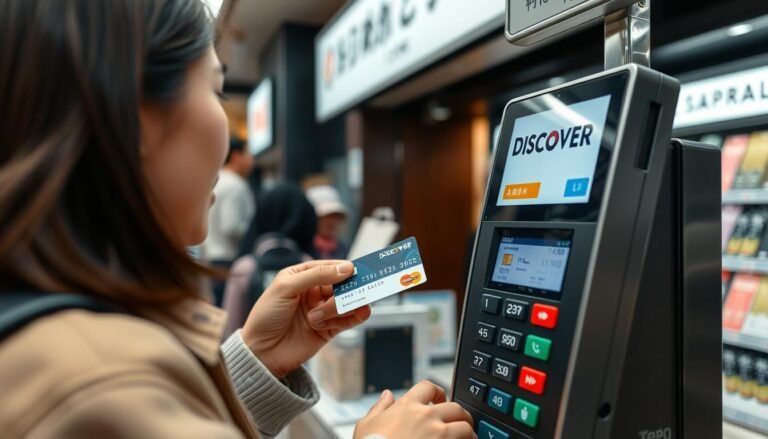Lost something in Japan? You might feel worried. But, Japan is famous for its honesty. Many people find their lost items, like wallets or phones, returned.
This guide shows how to search for lost items in Japan. You’ll find dedicated staff and locals who help. It’s reassuring to know your lost items might be found.
Key Takeaways
- Japan is known for returning misplaced items.
- Police stations and transit hubs keep lost property safe.
- Kind strangers often turn in what they find.
- Acting fast can improve your odds of recovery.
- This guide outlines how to reclaim your belongings.
Introduction to Japan’s Lost and Found Culture
Travelers often marvel at how victims of misplaced belongings retrieval see promising outcomes here. Many discover that lost items receive careful handling. This is true whether they are misplaced in a busy train station or a quaint neighborhood shop. This pattern stems from deep-rooted courtesies that guide daily life and interactions.
Why Japan Is Recognized for Its Honesty
Civic pride inspires locals to act quickly whenever they spot abandoned objects. People who find items rarely keep them. They submit them through lost and found procedures in japan, which strengthens trust among residents and visitors alike. This commitment to doing the right thing has turned many chance discoveries into smooth missing objects recovery stories.
Reassurance for Worried Travelers
Guests who misplace a passport or phone can rest easier knowing that thorough lost property assistance in japan is a proven reality. Police boxes, station counters, and even friendly bystanders work together to reunite owners with their goods. This culture encourages optimism for speedy retrieval, reducing stress for newcomers.
| Cultural Aspect | Impact on Lost Items |
|---|---|
| Respect for Others | Drives community to turn in lost property |
| Collective Responsibility | Boosts misplaced belongings retrieval rates |
| Honor System | Supports efficient missing objects recovery |
Common Spots Where You Might Misplace Belongings
Many visitors get distracted in busy places, losing their phones or wallets. Train stations are especially prone to mishaps. Bags are left behind at food stalls, and items fall out in crowded shops.
Knowing these areas can help avoid losing things in Tokyo.
Some might forget a bag under a table, while others drop a camera on a bench. It’s good for everyone to know where trouble spots are. Here are a few examples:
- Train stations with multiple lines intersecting
- Restaurant tables and café counters
- Heavily trafficked shopping districts
- Pedestrian-packed main roads and crosswalks
| Location | Commonly Lost Items |
|---|---|
| Train Platforms | Wallets, tickets |
| Food Courts | Phones, credit cards |
| Retail Stores | Shopping bags, loyalty cards |
| Sidewalks | Keys, ID cards |
Being extra careful can prevent losing things. Quick actions help in finding lost items in Japan. This way, travelers can enjoy their trips without worry.
The Importance of Police Boxes (Kōban)

Police boxes are key spots for travelers who lost something. They help those who need help finding lost items in Osaka or Kyoto. Officers are ready to take in lost belongings and help you get them back.
These stations are part of a network that helps both visitors and locals. People often bring found items here, showing civic pride. This helps connect you with lost property services in Japan, making it easier to get your belongings back.
How Kōban Facilitate Lost Property
Officers use a system to track down lost items. They help you with quick paperwork to ease your worries. A short conversation can help them find your item and guide you on what to do next.
Building Trust Through Community Policing
People regularly visit kōban, building trust. This trust leads to honest behavior. It creates a safer environment for everyone, making journeys better.
Filing a Report at Train Station Lost & Found
Travelers often turn to station staff for help with lost items in Japan. It’s a simple process that starts with a visit to the lost and found office. Be ready with details like when and where you lost the item, and a clear description.
Most train lines, from JR East to private ones, follow the same lost property steps. Sharing any unique marks, colors, or brand names can help. This increases the chances of getting your lost belongings back.
Documents and Details to Prepare
Staff might ask for an ID or even a passport for valuable items. Having a reference number or train ticket can help your claim. Remember the train route and coach number for a smoother process.
- Valid ID for confirmation
- Accurate time and location
- Item’s unique features
Communicating in English
In big cities, station clerks often speak basic English. A translation app can help if you face language issues. Saying “Sumimasen, I lost my bag” can start the conversation. Being polite can get a better response.
| Key Points | Why They Matter |
|---|---|
| Time Noted | Helps staff find the item faster |
| Passport or ID | Proves you own the item |
| Exact Description | Helps identify the item |
| Ticket or Route Info | Makes paperwork easier |
Airport Protocols for Finding Missing Items

Walking through Tokyo’s international airports can be a challenge. The lines are long, and the tasks are many. This can lead to forgetting your belongings. Luckily, each terminal in Japan has a team ready to help with lost article assistance.
To start, find where you think you lost your item. Talk to the airport staff near baggage claim or security. They can help with a lost item search japan. Whether it’s a phone or a passport, they’ll guide you.
Airports have strict rules, so it’s important to describe your item well. Also, show proof of ownership. They keep found items in a safe place for a few months. This gives you time to locate lost items in japan before your flight.
To get help, call the airport’s customer service or visit an info desk. Some airports even have online forms. This way, you can claim your items from anywhere. The staff is always ready to help, making sure you get your things back quickly.
Online Platforms to Report Missing Objects

Digital portals make it easy to find lost items in Japan when time is of the essence. Travelers can quickly report their missing items online. This saves time and reduces the need for guesswork.
These platforms connect people to lost property management networks. Providing exact details like train times or seat numbers increases the chances of finding your item. Online forms make the process smoother, cutting down on back-and-forth trips.
JR East’s Digital Submission Process
Visiting JR East’s official site gives users access to an online form. It asks for approximate travel dates and route information. Adding details like seat location can help narrow down the search.
The platform will update you if a potential match is found.
Filing Claims for Metro and Private Rail Lines
For those looking for a lost item locator in Tokyo, similar platforms are available for Tokyo Metro and private lines. Providing specific details like coach numbers or departure stations helps guide the search. This method supports lost and found services in Japan, helping travelers recover their lost valuables.
| Online Platform | Key Detail | Claim Tip |
|---|---|---|
| JR East | Form requires route details | Provide seat info |
| Tokyo Metro | Online claims for major lines | Include travel times |
| Private Lines | Varies by operator | List station and coach |
Why Quick Action Matters?

Time is crucial when dealing with missing items in japan. Some places hold onto belongings for just a few days. If they don’t find you, they might throw them away. Acting fast can help you get back what’s important to you.
Details like the train line and seat number can slip your mind if you wait too long. Quick action helps you track down lost items in japan. This way, you can find them before they get lost forever.
Claiming your lost items online or at stations can speed up the process. If you remember important details, you might get your belongings back. Taking action quickly makes you feel like you’ve done everything you can.
Recovering Lost Property in Taxis and Rideshares
Many people forget important items like wallets or phones during a busy ride. Acting fast is crucial for lost item retrieval in japan. A quick call to the dispatch center can prevent bigger problems. This is especially true when you notice something missing after you arrive.
At times, a digital receipt from Uber or JapanTaxi can be very helpful. It provides key details that help agents find your ride quickly.
Steps to Contact Taxi Companies
Most taxi companies respond quickly if you give them the right information. Here are some steps to increase your chances:
- Identify the taxi firm name or rideshare service.
- Give your pickup and drop-off locations.
- Share a receipt or timestamp for smoother tracking.
- Keep phone lines open for updates.
Confirming Ride Details for Faster Recovery
Confirming your ride details helps in the japan lost item search. Make sure to double-check the driver’s name or vehicle number. This avoids any mix-ups. Saving your trip information right away is also a good tip. Detailed records help operators find any lost items.
Being confident and following up thoroughly can greatly improve your chances of getting back what you lost.
Preventing Loss in Shopping Malls and Hotels
Shoppers sometimes forget bags in crowded aisles, and guests leave items behind in cozy rooms. Simple vigilance makes a difference. Name tags or small cards can keep valuables recognizable and speed up any lost property japan search.
Labeling Personal Belongings
Clear identification helps staff provide quick lost object assistance japan. A luggage tag with your name, phone number, or email stands out. Bold labels on cameras or laptop cases deter mix-ups, saving time and worry.
Using Smartphone Alerts and Reminders
Digital alerts prevent scattered situations. A location-based prompt can buzz when you leave a shopping spot without checking your belongings. This approach reduces mishaps for travelers who might later need help retrieving lost items in japan.
What If You Lost Something in Japan: Key Steps to Take
Visitors sometimes face unexpected worries with lost belongings japan. A practical mindset can help restore calm. Focus on simple steps that reduce panic and guide you toward a solution.
Start by retracing your day to spot where a missing item japan may have slipped from your bag or pocket. Speak to any uniformed officer at a nearby station. A polite greeting in English, combined with patience, creates a smooth path for help toward retrieve lost items in japan.
Staying clear-headed is vital. Write down details about your lost property and share them with travel hubs. Many locations partner with lost and found services japan to increase the chance of a swift reunion.
- Stay composed and gather facts.
- Speak to staff near the spot of loss.
- Document item traits in a small notebook.
| Step | Reason |
|---|---|
| Retrace your route | Identify the exact place or time you last saw your item |
| Contact local help | Police boxes and train stations offer immediate support |
| Record every detail | Color, size, and special markings enhance search efforts |
Dealing with Lost Passports and Credit Cards
Losing a passport or credit card can really mess up your trip. You need to act fast to get your items back. Reporting it quickly helps you get things sorted out.
Police stations can help find your lost items and give you a report. This report is key for getting a new passport or travel permit. If your credit card is missing, acting fast stops others from using it.
Contacting the Nearest Embassy
Call the nearest embassy for a new passport or travel document. Embassy staff can help you through the lost item process in Japan. They make sure you face no big delays or problems.
Emergency Procedures for Canceling Credit Cards
Call your bank’s emergency number right away. They can stop any more transactions, send you a new card, and give you security advice. Keep all your references handy for later use.
Keeping Valuables Safe While Traveling
Travelers often carry important items like passports, electronics, and credit cards. It’s wise to be careful with these. Using an anti-theft bag or a discreet pouch can help keep things safe while exploring cities.
It’s a good idea to label your belongings in both English and Japanese. This makes it easier for anyone who finds them to return them to you. Also, having backups of important documents can help a lot.
Being aware of your surroundings, especially on public transport, is key. A quick check before leaving your seat can save you from losing something. Some people even use reminders on their phones to remember where they put their valuables.
Samsonite luggage has strong locks, but labeling is just as crucial. To avoid losing things, keep digital copies of important documents. If you do lose something, going to a police box can help you get it back faster.
When you need to find lost items, having a clear description helps a lot. This makes it easier for local staff to return your lost wallet or phone. The best way to avoid losing things is to stay vigilant and prepared.
Conclusion
When a wallet or jewelry goes missing, it can cause a lot of worry. In Japan, there are systems in place to help find lost items. The culture of honesty makes it easier for travelers to get their belongings back.
Starting with local staff or authorities is a good first step. You can also report lost items at stations or airports like Narita or Haneda. Officers take detailed notes, making it easier to find what’s lost.
Being proactive helps a lot. Keep your item’s description ready for when you need to report it. Online guides and official channels can offer valuable advice on finding lost items in Japan.
Acting quickly is key. A receipt from the nearest police box or transport office can help track your item. Keep photos of your belongings as proof. Labeling your luggage and staying alert can also help.
Japan’s culture values honesty, which helps in recovering lost items. Even if you’re new to Japan, there are clear steps to follow. Mark your belongings, act fast, and trust in the culture’s honesty.






